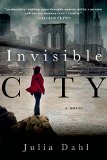Summary | Excerpt | Reviews | Beyond the Book | Readalikes | Genres & Themes | Author Bio

Critics' Opinion:
Readers' Opinion:
First Published:
May 2014, 304 pages
Paperback:
Mar 2015, 304 pages
 Book Reviewed by:
Book Reviewed by:
Donna Chavez
Buy This Book
With the crowd beside her swelled, my stomach begins to hurt. Why can’t they get her out of there? My intestines get all fucked up when I get upset. I learned from a therapist many years ago that it’s called anxiety. I’m always afraid of stuff. Weird stuff, though. Not monsters or murderers or even airplanes. It’s more ephemeral than that. I feel fear when I feel insecure. When I feel alone or rejected. And when I feel powerless—like I do looking at this poor woman’s skin, torn by metal, bare beneath the sun on the coldest day of the year. Get her out, I think. Get her warm.
Johnny appears next to me.
“This is seriously fucked up,” he says, winded, excited.
“Who the fuck are all these people?” I say. “Get her inside and sort it out there.”
Johnny chuckles. “If only it were so easy, Beck.”
“What?” I say.
“The Jews are here,” he says, as if that explains something.
“And?”
“And, the Jews take their own bodies.”
I do not understand.
“You’ve never seen them before? They were at that murder-suicide around Thanksgiving on the Upper East Side. Remember? Woman who owned the apartment is having dinner with a guy, her ex barges in and kills everybody. She was Jewish, so they came to collect the body. They cut up the rug, too. Took the sofa cushions.”
“They did not.”
“They did. Almost came to blows with a couple cops, too. Turf shit. In the Jewish religion, they’re supposed to bury you with everything, every drop of blood and hair and stuff.”
“They let them do that? Just take the body? Just take evidence?”
“In this case, they knew who did it,” says Johnny. “But, yeah. I think so.”
This seems very implausible to me. I doubt the NYPD just lets people run off with their crime scene evidence. But it’s not really worth the conversation with Johnny. He calls black people “niggers.”
Finally, some decision is made. The Jews run back to their van and emerge with a stretcher, which they unfold, wheeled legs dropping to the ground. A black bag—a body bag—lies thin atop it. They push the stretcher to the cage and consult with the officers. Everyone stands still for several more minutes, holding themselves against the cold, peering at the leg. Johnny is snapping away, ducking beneath the yellow tape and being yelled at to “get back.” Calloway and Gretchen and Drew come running.
I’m trying to make eye contact with one of the Hasidic men from the gas station. The taller man is stony faced, but the shorter one is clearly distraught, and very often distraught people talk. He looks my way and I raise my eyebrow and open my mouth expectantly. I put up a gloved hand and wave. He sees me—and then he looks away.
The metal arm groans again and lifts up a few feet. Two policemen spread a tarp beneath the cage, and then the tip creeps open, dropping scrap and, finally, the woman. She falls like the rest of the material, turgid and graceless. But as soon as she’s down, the operator swings the cage back, keeping the rest of the scrap from crushing her. A couple pieces come loose, though, and the police scramble to protect her. Johnny is snapping and I’m just staring. I can see her belly and her breasts and a mound of black pubic hair. I shiver again. It’s so fucking cold. Cover her, I think.
“Look,” says Johnny, showing me his viewfinder, pressing buttons to zoom in on her face. Her lips are blue and she has a completely shaved head.
“See,” he says. “She’s a Jew.” I look at him and he looks toward the Hasids. “They make their women shave their heads.”
“No, they don’t,” I say, but I don’t actually know whether he’s wrong.
Excerpted from Invisible City by Julia Dahl. Copyright © 2014 by Julia Dahl. Excerpted by permission of St. Martin's Minotaur. All rights reserved. No part of this excerpt may be reproduced or reprinted without permission in writing from the publisher.





The Funeral Cryer by Wenyan Lu
Debut novelist Wenyan Lu brings us this witty yet profound story about one woman's midlife reawakening in contemporary rural China.
Your guide toexceptional books
BookBrowse seeks out and recommends the best in contemporary fiction and nonfiction—books that not only engage and entertain but also deepen our understanding of ourselves and the world around us.